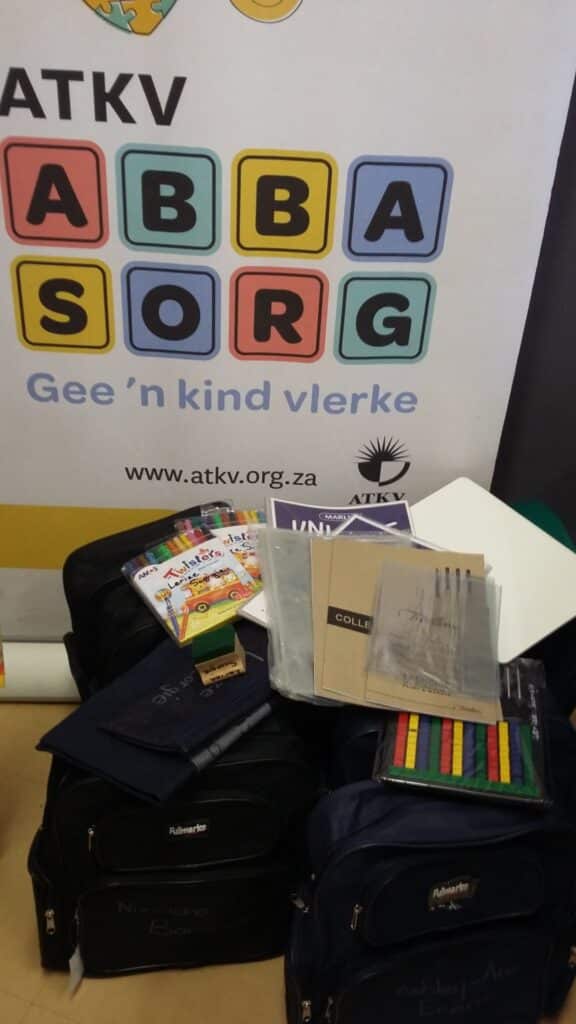The Afrikaanse Taal- en Kultuurvereniging (ATKV) wanted to demonstrate the impact of their AbbAsorg early learning programme, but they weren’t sure how to, until they came across the Early Learning Outcomes Measurements (ELOM) tools. We chatted to AbbAsorg manager Jerome Steenkamp about what their ELOM assessments revealed and how they are using the data to drive change for children.
AbbAsorg, the corporate social investment (CSI) programme of the ATKV, operates early learning centres in low-income communities in Stellenbosch, Bloemfontein, Potchefstroom and Mossel Bay. Jerome has been the programme manager since 2020.
HIGH SCHOOL TO EARLY LEARNING
Jerome hadn’t intended to work in early childhood development (ECD). When he started his career, he believed that formal learning only began in the foundation phase in primary school. But after several years of teaching in high schools and primary schools, he understood that learning begins much earlier.
“When children struggle academically, educators can be inclined to point fingers at the previous phase: high school blames primary school, primary blames the foundation phase. And that was where the buck stopped. It was like a game of musical chairs.
“The truth is that the real foundation is laid in ECD.”

A SEARCH FOR TRUTH
Jerome is as passionate about business as he is about education and holds a master’s degree in business leadership. When he took on the role of AbbAsorg’s manager he took a strategic look at the ECD programme.
“We say we deliver quality services, but how could we prove it? We didn’t really know how well our children were achieving their developmental milestones. It was this search for ‘truth’ that led us to the ELOM tools.”
AbbAsorg used the ELOM 4 & 5 Years Assessment Tool and Social-Emotional Rating Scale.
Initially they tried using the ELOM tools in one ECD centre. “This pilot demonstrated that the tools had the potential to answer the questions we were asking.” From there they rolled out assessments in their four other ECD centres.
According to Jerome, the process was seamless because they received plenty of support and resources from the DataDrive2030 team. Three external ELOM assessors did the assessments in Afrikaans.
STUNTING UNCOVERED
The initial ELOM data is already being used to bridge gaps and address challenges, with support from occupational therapists and other specialists.
The assessments revealed nutritional stunting in some young children. “Stunted children can’t reach their full potential. As a result of this information we are improving nutrition at the centres and involving parents.”
Follow-up assessments later in the year will reveal how well interventions are working.

FUNDING MATTERS
Jerome believes that being able to show credible impact will be key to unlocking additional funding. This is critical because ATKV is currently working on being less dependent on a large funder.
“Showing real impact helps us build a more compelling case for support.”
ACCURATE DATA, EFFECTIVE SOLUTIONS
Jerome believes that the ELOM data can also help tackle the root causes of educational challenges across the country.
“As Melinda Gates said, it’s not enough to be well-intentioned, we must also be well-informed. ELOM helps to diagnose and understand what’s really going on, so we can respond effectively and direct resources to solving specific problems.“
Jerome calls on educators and government to use the ELOM data to make quality early learning a reality of all South African children: “The foundation phase is incorrectly named. The real foundation is ECD. If you build a solid foundation then, there is a much greater chance that a child will develop into who they are destined to be.“
Find out more about using the ELOM tools here.
To find out more about AbbAsorg and the ATKV visit https://atkv.org.za.
